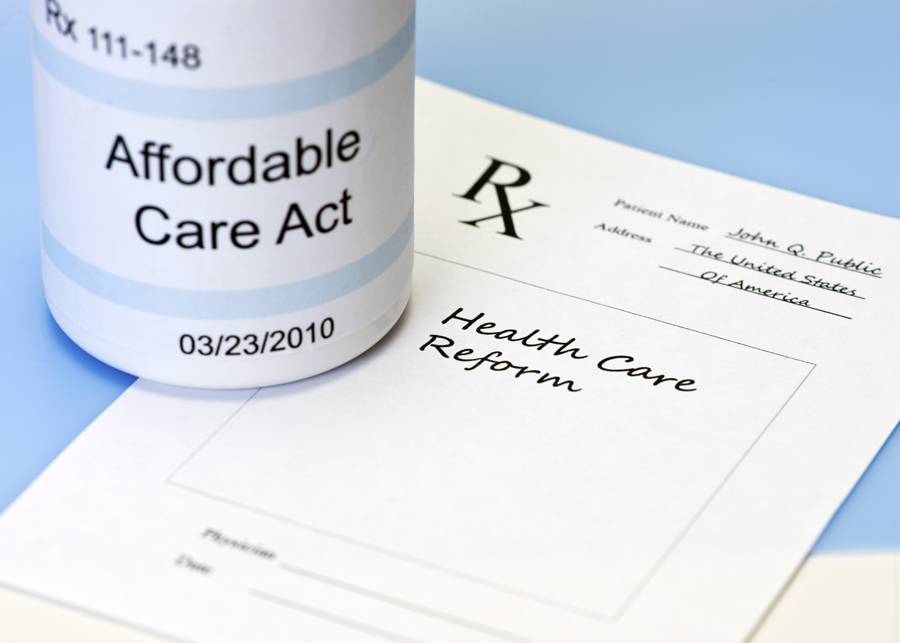What health care costs can I deduct?
March 24, 2015 by Chris Rubino
You might have thought that with the new Health Care Reform more of all the money you spend on health insurance and medical expenses would be deductible. In fact, Obamacare (the “Affordable Care Act”) has had very little impact on the personal itemized medical deduction, other than raising the floor a bit so that less is deductible. Below is a quick overview of what expenses are allowed under the medical expenses deduction and how it works.
Health Insurance Costs
The cost of health insurance (and to an extent qualified long-term care insurance) is includable in qualified deductible medical expenses, but only the portion that you pay for “out-of-pocket.” This means that health insurance paid for by your insurance company or your employer is not deductible. In addition, health insurance expenses paid for with a pretax deduction from your paycheck, such as a Medical Flex Plan, Medical Reimbursement Plan, or Cafeteria (Section 125) Plan, are not deductible. If you are not sure if the insurance deductions from your paycheck are pre-tax or after-tax, check with your HR department.
If you are self-employed and paying for your own insurance you can take a deduction for it, but it is usually a better deal to claim the cost as a self-employed health insurance deduction if you are eligible.
Medical Costs
The cost of diagnosis, cure, mitigation, treatment, or prevention of disease and the costs for treatments affecting any part or function of the body are considered deductible medical costs. But, again, the costs are deductible only if you pay for them with after-tax dollars and are not reimbursed. As an example, if your doctor’s visit costs $100 and you pay a $20 co-pay, with the insurance company picking up the remaining $80, only $20 is a potentially deductible medical expense. But if you pay the $20 with a pre-tax Flexible Spending Account, it would not be deductible.
Costs considered for your general health are not deductible, such as swimming lessons or health club dues. Cosmetic surgery is not deductible, unless to remediate a deformity resulting from disease or injury.
Drug Costs
Your out-of-pocket costs for prescription drugs are generally includable in your deductible medical expenses. Not includable are controlled substances, such as marijuana (yes, even if legal under state law), over-the-counter medications that you would not need a prescription for, or nutritional substances (unless prescribed for a specific medical condition) and other similar items. Illegally imported drugs are not deductible.
Ancillary Medical Costs
Dental costs, prescription glasses or contacts, and transportation costs are deductible. Transportation costs are the actual costs of gas and oil used on your vehicle (but none of the general costs of the vehicle), or you can use can use a standard mileage rate of 23.5¢ per mile for 2014. Both methods allow you to include parking and tolls. Travel expenses must be for specific reasons, and you cannot deduct travel for the general improvement of your health, such as airfare to fly to Hawaii to take swimming lessons.
Timing of Medical Payments
Payments for qualified medical expenses made in the tax year for you, your spouse, and your dependents are deductible on that year’s tax return. For example, if you paid for services rendered in December of 2014 in January of 2015, the payment is deductible on your 2015 taxes. Payments made by credit card are considered paid on the date charged. If the payment is made in advance for care that will be rendered substantially beyond the end of the year, it is not deductible for the year paid (except for qualified long-term care contracts and similar expenses).
That Pesky Percentage of Income Floor
For any of these costs to truly result in a deduction you must itemize your deductions on the Schedule A. Even then, the combined deductible medical costs must be greater than 10% of your adjusted gross income (the last number on the front page of the 1040). The portion that exceeds 10% is the actual deductible amount. The 10% amount is lowered to 7.5% for taxpayers 65 years of age and older until 2017.
This is just the briefest of summaries. If you have a general question or comment on deductible (or not) medical expenses, please feel free to respond with a comment.





